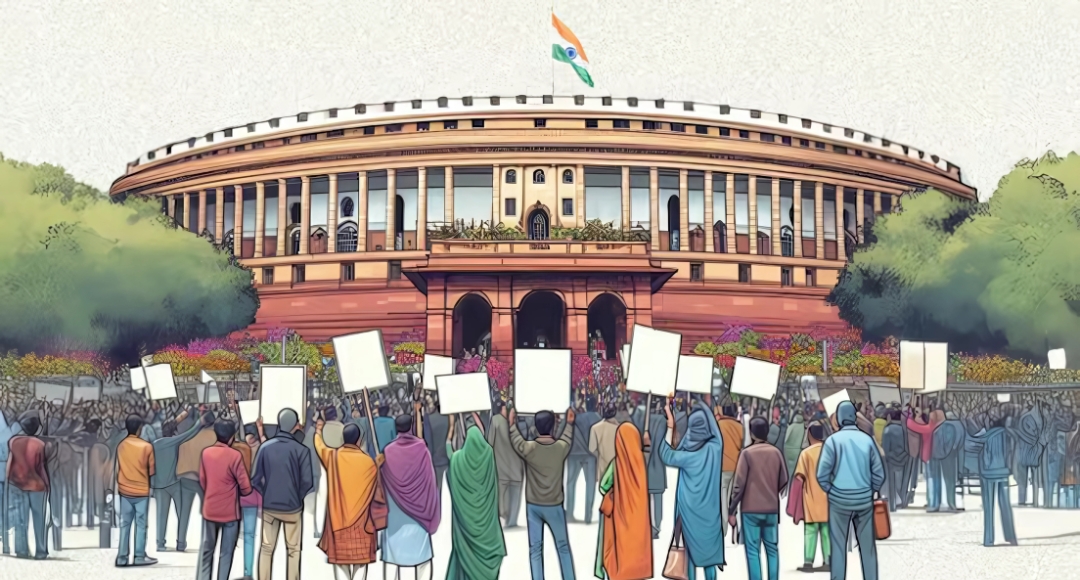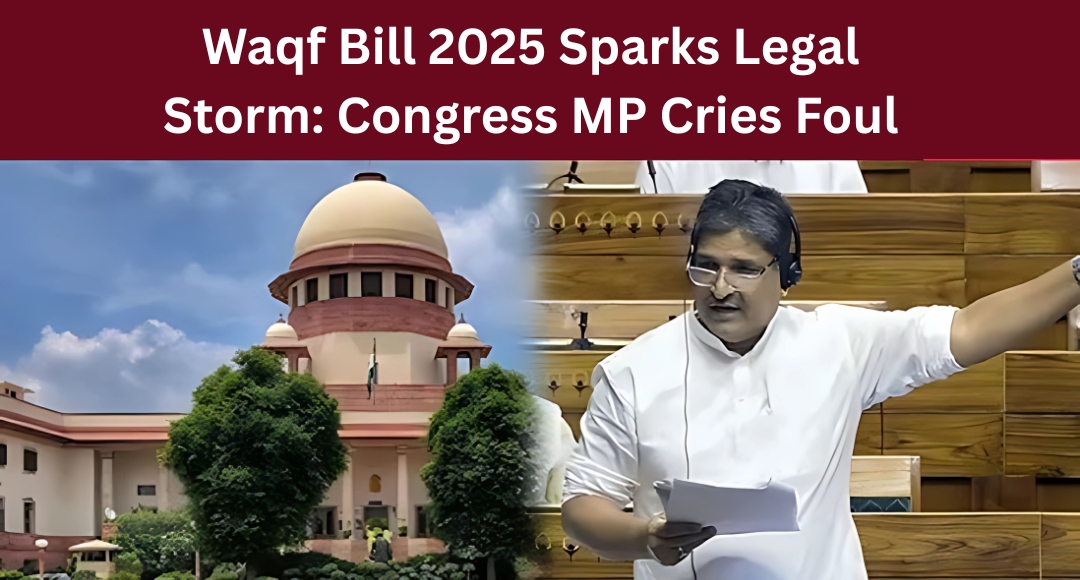In a significant move that has stirred political and legal circles, Congress MP Mohammed Jawed has taken a bold step by challenging the recently passed Waqf Bill 2025 in the Supreme Court of India. His action came just hours after the bill was cleared by both Houses of Parliament, marking the beginning of what could be a landmark legal battle over the religious and constitutional rights of the Muslim community.
Why Mohammed Jawed Challenged the Waqf Bill
Mohammed Jawed, who represents the Kishanganj constituency in Bihar and served as a member of the Joint Parliamentary Committee on the Waqf Bill, expressed deep concern over what he called “arbitrary and unfair restrictions” being placed on Waqf properties. In his petition, he argued that the amendments interfere with the community’s right to manage their religious endowments, infringing on the religious freedom and property rights guaranteed by the Constitution.

Concerns Over State Control and Property Rights
He emphasized that the new law hands more control to the state, limiting the ability of individuals to dedicate property for religious purposes—a practice deeply rooted in Islamic tradition. He also pointed out that the law violates Article 300A, which safeguards the property right, by shifting critical powers from the Waqf Board to state officials like the District Collector.
Claims of Discrimination Against Muslims
What has drawn further criticism is the alleged discriminatory nature of the amendments. According to the petition, while Hindu and Sikh religious trusts are allowed a degree of self-regulation, the new law places disproportionate scrutiny and control over Muslim endowments. This, Jawed claims, goes against the principle of equality before the law under Article 14, a cornerstone of India’s constitutional framework.
Impact on Recent Converts and Religious Freedom
Perhaps one of the most emotional and sensitive parts of the petition is the challenge to restrictions on the creation of Waqfs based on the length of one’s religious practice. This, he argued, unfairly targets recent converts to Islam and violates the fundamental right to practice religion under Article 25. He further claimed that such clauses lack any basis in Islamic law, tradition, or judicial precedent.
Removal of “Waqf-by-User” and Its Legal Implications
The removal of the concept of “Waqf-by-User”, a principle that allows religious properties to gain waqf status through long-standing public use, was also called out. Jawed asserted that eliminating this principle not only goes against earlier Supreme Court rulings but also undermines Article 26, which protects the rights of religious communities to manage their institutions.
Inclusion of Non-Muslims in Waqf Boards
Another controversial change has been the inclusion of non-Muslim members in the Waqf Board and Central Waqf Council, something the petition describes as a “serious intrusion” into religious autonomy. According to Jawed, no such interference exists in the governance of Hindu religious institutions, making this clause deeply unfair and unwarranted.
Changes to Waqf Tribunals Raise Red Flags

The petition also raised concerns over the restructuring of Waqf Tribunals, stating that the reduced representation of Islamic law experts will severely affect the fair resolution of waqf-related disputes.
A Constitutional Battle That Could Set a Precedent
As the country watches closely, this challenge in the Supreme Court could become a defining case for the protection of religious rights and the balance of secular governance in India. For now, Mohammed Jawed’s move is being seen as a firm stand for constitutional values and the community’s right to self-governance.
Disclaimer: This article is based on publicly available information and legal developments as of April 2025. It is intended solely for informational purposes and does not express any personal or political bias. Readers are encouraged to follow official court proceedings and verified news outlets for further updates.
Also Read:
Evolution and Scope of Administrative Law
What is Question of Law and Question of Fact – UPSC
Supreme Court Slams Overpriced Lawyers: Justice Must Be Accessible to All






